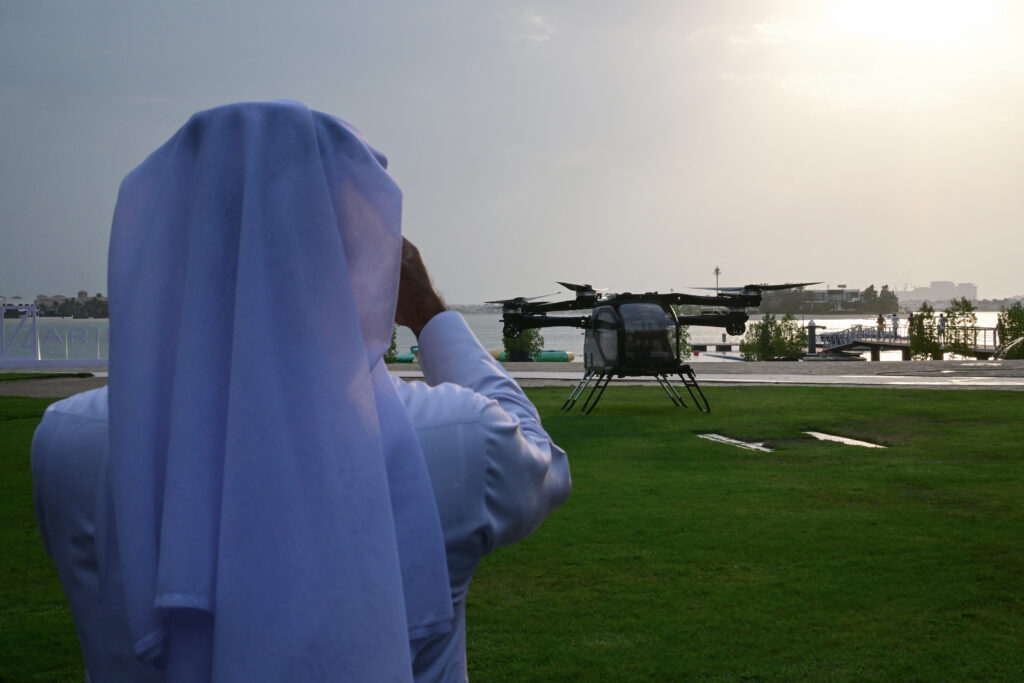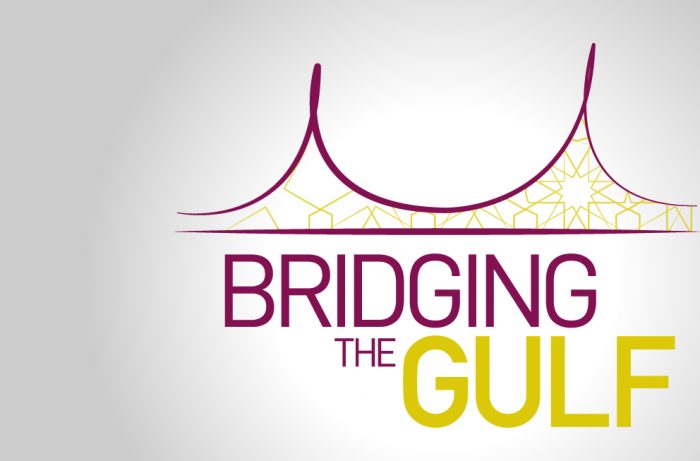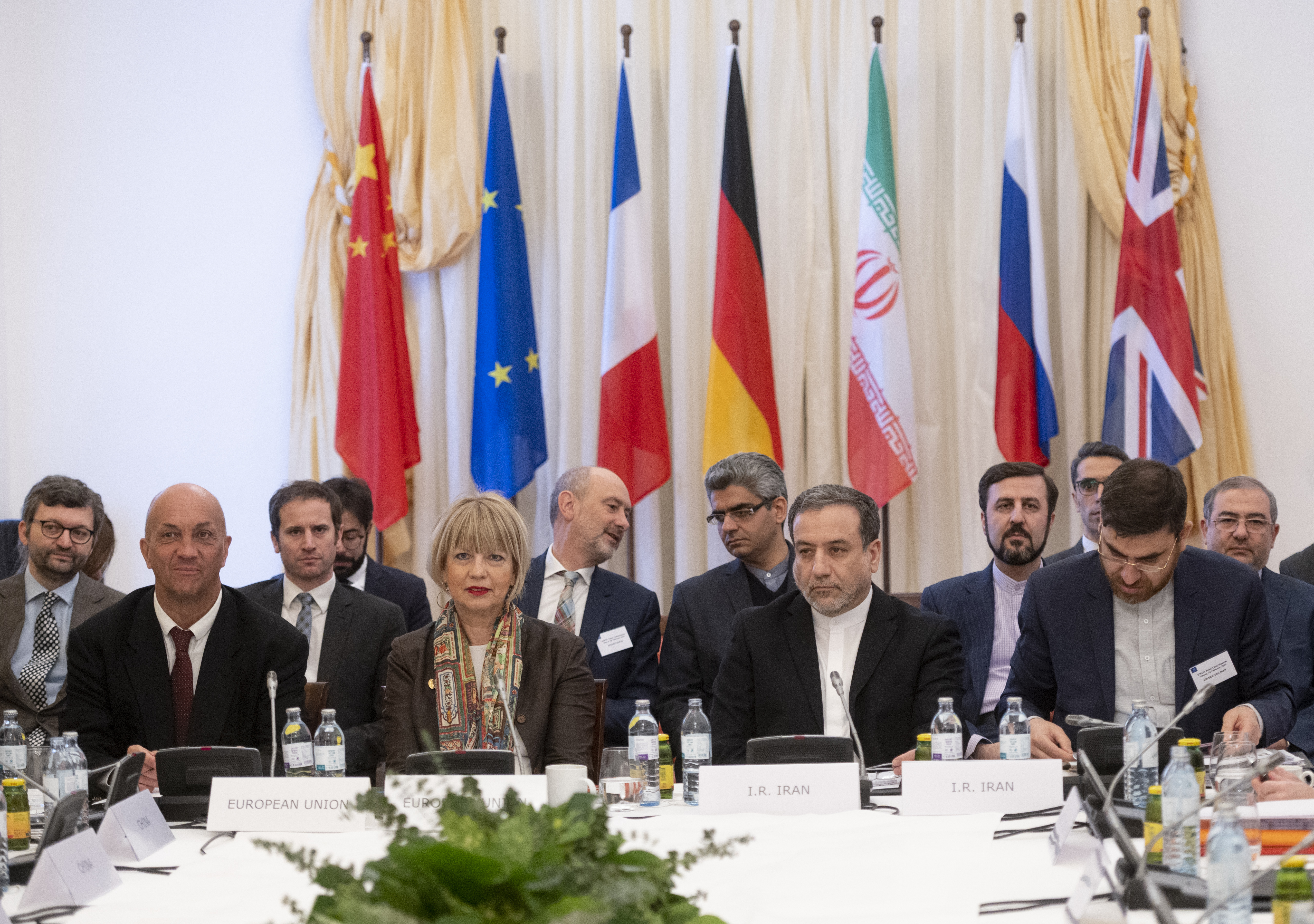
- 25 Jan 2022
Iran-Europe Dynamics and the JCPOA Negotiations
(This event is organised by MEI Political Economy research cluster.)
Abstract
Against the backdrop of the JCPOA negotiations, this webinar will explore the inherent dynamics between Iran and the European Union (EU). It is notable that since the start of the Iranian nuclear controversy about two decades ago, the EU has been steadfastly mediating between Iran and the US, an effort that has continued till today. Therefore, through our discussion, we seek to find answers to questions such as EU’s motivation behind its central role in the nuclear negotiations, the nature of Iran-EU relations and what does the EU foresee Iran’s role in the Middle East to be, as well as its own – specifically in the wake of the gradually receding role of the US in the region.
This public talk will be conducted online via Zoom on Tuesday, 25 January 2022, from 4.00 pm to 5.30 pm (SGT). All are welcome to participate. This event is free, however, registration is compulsory. Successful registrants will receive a confirmation email with the Zoom details closer to the date of the event.
Image Caption: A meeting of the JCPOA Joint Commission on Iran’s nuclear program at the EU Delegation to the International Organizations office in Vienna, Austria on February 26, 2020. Photo by Joe Klamar via AFP
Listen to the full event here:
Watch the full event here:
Read the Summary of Event Proceedings:
By Fauzan Roslee
Research Associate, Middle East Institute, National University of Singapore
Dr Asif Shuja, Senior Research Fellow, MEI-NUS, commenced the session by welcoming the panellists and audiences, as well as elaborating on the scope of the following discussion. As the Joint Comprehensive Plan of Action (JCPOA) negotiations are still ongoing in Vienna, the panellists will explore the inherent dynamics between Iran and the European Union (EU). It is notable that since the start of the Iranian nuclear controversy about two decades ago, the EU has been straightforwardly radiating between Iran and the US – an effort that has continued till today. Therefore, the panellists elaborated on questions such as EU’s motivation behind its central role in the nuclear negotiations, the nature of Iran-EU relations and Iran’s role in the Middle East, as seen by the EU.
Prof Heinz Gärtner, Lecturer for political science at the Universities of Vienna and Krems; Chair of the Advisory Board of the International Institute for Peace, then began by speaking about EU’s sentiments towards the JCPOA when it was first signed in 2015. The EU had then regarded it as a “masterpiece of effective multilateralism” and a very well-negotiated arms control agreement with a comprehensive verification process in place. As a result, after 2015, many European economic delegations and individual companies had travelled to Iran and negotiated several memoranda of understanding in the hopes of boosting trade ties. However, after President Trump withdrew the US from the JCPOA agreement, trade between Iran and the EU fell by 70 per cent as companies were threatened with sanctions by the US government.
However, the EU had managed to stay in the JCPOA agreement but had not been vocal enough in criticising President Trump’s decision. In 2020, when President Biden announced that the US will return to the JCPOA, the EU began to recognise its responsibility in facilitating talks for a new agreement. When the talks began in April 2021 in Vienna, the EU played a successful mediating role to keep communication alive between the US and Iran despite external events, such as a cyberattack on Iran’s Natanz nuclear facility and Iran’s uranium enrichment activity. Nevertheless, the EU had remained silent about the threat of secondary sanctions imposed by the US against EU companies that were looking to resume business in Iran.
Prof Gärtner then explained that the negotiations have made significant progress after six rounds of talks. Details of the negotiations can be classified into three parts: 1) Iran’s nuclear program; 2) sanctions relief; and 3) implementation. At this stage, the technical issues are still being discussed, which will only be resolved through political will on the part of Iran and the US. However, there are still unresolved issues surrounding the negotiations. First, the sanctions definition and verification of sanction relief are still being debated by both Iran and the US. At the same time, Iran is questioning the kind of guarantees that the US can put in place to ensure that it will not renege on the agreement again.
He then concluded his remarks by outlining why the EU is invested in the success of the negotiations. First, a failure of the talks would increase the suspicion by Iran’s enemies – especially Israel – that it is working on a nuclear weapon. As a result, Israel and the US would be forced to launch pre-emptive strikes against Iran, which will only cause Iran to react asymmetrically. Consequently, this would destabilise the Middle East and affect Europe more than it affects the US. Should the negotiations succeed, trade relations between Iran and the EU would improve and uplift Iran’s economy and internal stability. At the same time, the risk of nuclear proliferation in the region will also be further reduced. This, hopefully, will create and foster a platform for regional co-operation which benefits all of the parties involved and demonstrate that multilateralism can work.
Dr Clément Therme, Teaching Fellow at Sciences Po and Research Associate at the School for Advanced Studies in Social Sciences, Paris, then provided a “French” viewpoint of the EU’s role in the ongoing negotiations. First of all, Dr Therme pointed out that the EU – as well as the French government – does not have a discernible foreign policy concerning Iran as it (Tehran) is not viewed as important as other major European partners in the Middle East like Saudi Arabia, the UAE and Israel. This is because the EU had wanted to avoid a potential conflict with its major partners in the Middle East – who view Iran as a threat. Additionally, the EU does not have full economic sovereignty, whereby American sanctions are still applicable to European companies. These factors have shaped the Iranian outlook in the negotiations such that the EU can be used by the Iranian government as a leverage for it to downplay its anti-US sentiments. Hence, the EU is caught between the US hegemony and Iranian political manoeuvres. Nonetheless, the EU can formulate a sound Iran policy by figuring out an escape to this situation.
The other issue that the EU has to contend with is the need for a longterm positive economic relationship with Iran. Solving the nuclear issue is not enough as that can be only on a shortterm economic solution. To that end, Dr Therme stressed the need to focus on Iran’s regional policies and its human rights issues in order to understand Iran’s evolution, especially the stability of the regime. This would require the EU to consult with its partners in the region so as to work towards stability in the Middle East.
Lastly, Dr Therme pointed out that the EU’s role as a mediator between Iran and the West has always been politicised. This is because the EU has always relied on the US and thus, is not really considered as an impartial party in the negotiations. As a result, the EU does not gain the full trust of Iran, which would typically prefer to have Russia or China as its mediator. He then concluded by reiterating his initial point: there is no such thing as a European policy towards Iran since 1979. While a foreign policy strategy used to exist before then – Iran used to be the first market for French export in the Middle East – it was centred on the trade relations between Europe and Iran but since the JCPOA agreement, what is more important for the EU with regards to the Iranian issue is the position of its allies in the Middle East. This would entail building an Iranian strategy that is convenient for EU’s allies, as well as to position Iran as a means for the EU to get closer to the Biden administration and forge a common understanding with the US.
Dr Ali Fathollah-Nejad, Associate Fellow, Issam Fares Institute for Public Policy and International Affairs, American University of Beirut, began by commenting that although the EU has never been the central actor in the JCPOA negotiations – unlike Tehran and Washington – it does have important stakes in the Iran nuclear conflict which is primarily a nuclear non-proliferation in the Middle East. This is because, especially after the 2008 global economic crisis, there is a renewed interest in the Iranian market among European countries. Another reason for the EU’s interest in keeping the Middle East nuclear-free is to avoid another exodus of refugees into Europe, like what had happened with the Syrian war. However, Dr Fathollah-Nejad contended that Iranians still figure among the top groups of immigrants flowing to Europe – though there’s no war in Iran – due to the domestic situation in the country.
After the Trump administration withdrew from the JCPOA, several senior EU policymakers have heavily criticised the move by the US and wanted to step in to provide Iran with some economic relief in the hopes of convincing them to keep abiding by the deal – which they did for a while. However, despite efforts by the EU foreign policy chief to offer sanctions relief for about a dozen points, which would forge a closer European-Iranian economic relations, all of them had no standing in reality because of the weight of extra-territorial sanctions imposed by the US at the time. While the Trump administration should take responsibility for leaving a deal that was clearly working, at least in terms of nuclear non-proliferation, the expectation of pacification of the Middle East did not exactly happen. One could even argue that the opposite happened, such that Iran got emboldened by the JCPOA in terms of expanding its regional policies as well as its ballistic missile programmes – which have and will become controversial issues that cannot be ignored if a mid or longterm arrangement is to be successfully made with Iran.
Additionally, Germany – the most important country in the EU – has also been criticised for not being more vocal or doing more on the Iranian issue. Some prominent Iranian-Germans have criticised the German government for being silent and too focused on the nuclear deal, when the main issues faced by Iranians are non-nuclear related in nature. However, the new German government has pledged to pursue a value-based foreign policy where human rights feature heavily on its agenda.
In conclusion, Dr Fathollah-Nejad stated that the economic dividends of the initial JCPOA agreement is not necessarily strong despite the superficial growth in Iran’s GDP caused by revitalised oil exports. This is because the rise in GDP did not create enough employment and the very nature of Iran’s economic system did not allow for the trickling down of the economic benefits of the JCPOA to the average Iranian. In fact, many observers have also noted that this period saw a widening of income inequality in Iran, which led to social frustration that paved the way for a nationwide uprising in the turn of 2017. In other words, rather than striving for nuclear non-proliferation, the new JCPOA agreement should also look into the socio-economic dividends of the deal or else it would just be a repeat of what had transpired from the initial deal.
About the Speakers
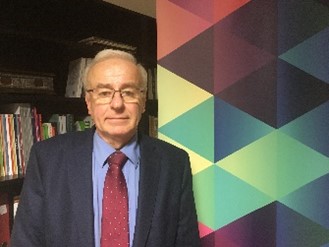
Lecturer for Political Science at the Universities of Vienna and Krems
Chair of the Advisory Board of the International Institute for Peace (IIP) in Vienna
Dr Ali Fathollah-Nejad
Associate Fellow
Issam Fares Institute for Public Policy and International Affairs
American University of Beirut
Dr Clément Therme
Teaching Fellow at Sciences Po and Research Associate at the School for Advanced Studies in Social Sciences, Paris
[Moderator] Dr Asif Shuja
Senior Research Fellow
Middle East Institute, National University of Singapore
Professor Heinz Gärtner is a Lecturer in the political science department at the University of Vienna and at Danube University in Krems. He was previously the academic director of the Austrian Institute for International Affairs. He has held various Fulbright Fellowships and was the Austrian Chair at Stanford University. He was Austrian Marshall Plan Foundation Fellow at the Johns Hopkins University in Washington DC. Among other appointments, he chairs the advisory board of the International Institute for Peace in Vienna and of the commission Strategy and Security of the Austrian Armed Forces. He published widely on issues of international security, transatlantic relations and the Middle East. Prof Gärtner received the Bruno Kreisky (legendary former Austrian Chancellor) Award for most outstanding political books. Together with Mitra Shamoradi, he edited the book Iran in the International System – Iran between Great Powers and Great Ideas (Routledge: London & New York, 2020).
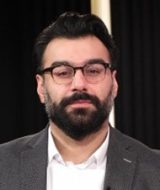
Dr Ali Fathollah-Nejad is a German–Iranian political scientist focusing on Iran, the Middle East and the post-unipolar world order. He is an Associate Fellow with the American University of Beirut’s Issam Fares Institute for Public Policy and International Affairs (IFI-AUB), where he will be publishing a monthly brief “Iran in Focus”. He is the author of the much-acclaimed book Iran in an Emerging New World Order: From Ahmadinejad to Rouhani. Dr Fathollah-Nejad holds a PhD in international relations from the department of development studies at SOAS (School of Oriental and African Studies, University of London) and was the winner of the 2016/17 Post-doctoral Fellowship of the Harvard Kennedy School’s Iran Project. More recently, he was senior lecturer in Middle East and Comparative Politics at the University of Tübingen, Germany and adjunct assistant professor in the PhD programme of Qatar University’s Gulf Studies Center. Dr Fathollah-Nejad is also the former Iran expert of the Brookings Institution in Doha (BDC, 2017–2020) and the German Council on Foreign Relations (DGAP, 2015–2018).
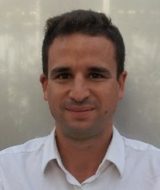
Dr Clément Therme is a Non-resident Fellow at the International Institute for Iranian Studies (Rasanah) and a Research Associate at the School for Advanced Studies in Social Sciences (EHESS) in Paris. He is also a Teaching Fellow at Sciences Po and was a lecturer at the National Institute for Oriental Languages and Civilisations (Institut national des langues et civilisations orientales) in Paris. His articles have appeared in Iranian Studies, The Middle East Journal, Politique étrangère, Maghreb-Machrek and Politique américaine. He is also the author of Les relations entre Téhéran et Moscou depuis 1979 (PUF, 2012) and co-editor of the book Iran and the Challenges of the Twenty-First Century (Mazda Publishers, 2013).
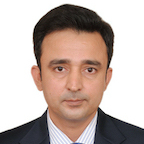
[Moderator] Dr Asif Shuja is a Senior Research Fellow at the Middle East Institute, National University of Singapore. He is an Iran expert whose research focus include Iranian domestic politics, the country’s nuclear issue, Iran’s foreign policy and Tehran’s regional role. He was previously associated with the International Center for Strategic Studies, Abu Dhabi, as a non-resident fellow. His other research affiliations include the Indian Council of World Affairs, where he worked as a research fellow and the Centre for Air Power Studies, New Delhi where he was attached with the Nuclear Security Project of the Department of Atomic Energy. Dr Shuja obtained his PhD in Iran’s political power struggle from the Centre for West Asian (Middle East) Studies, Jawaharlal Nehru University, New Delhi. He is the author of the book, India‑Iran Relations under the Shadow of the Iranian Nuclear Issue.

